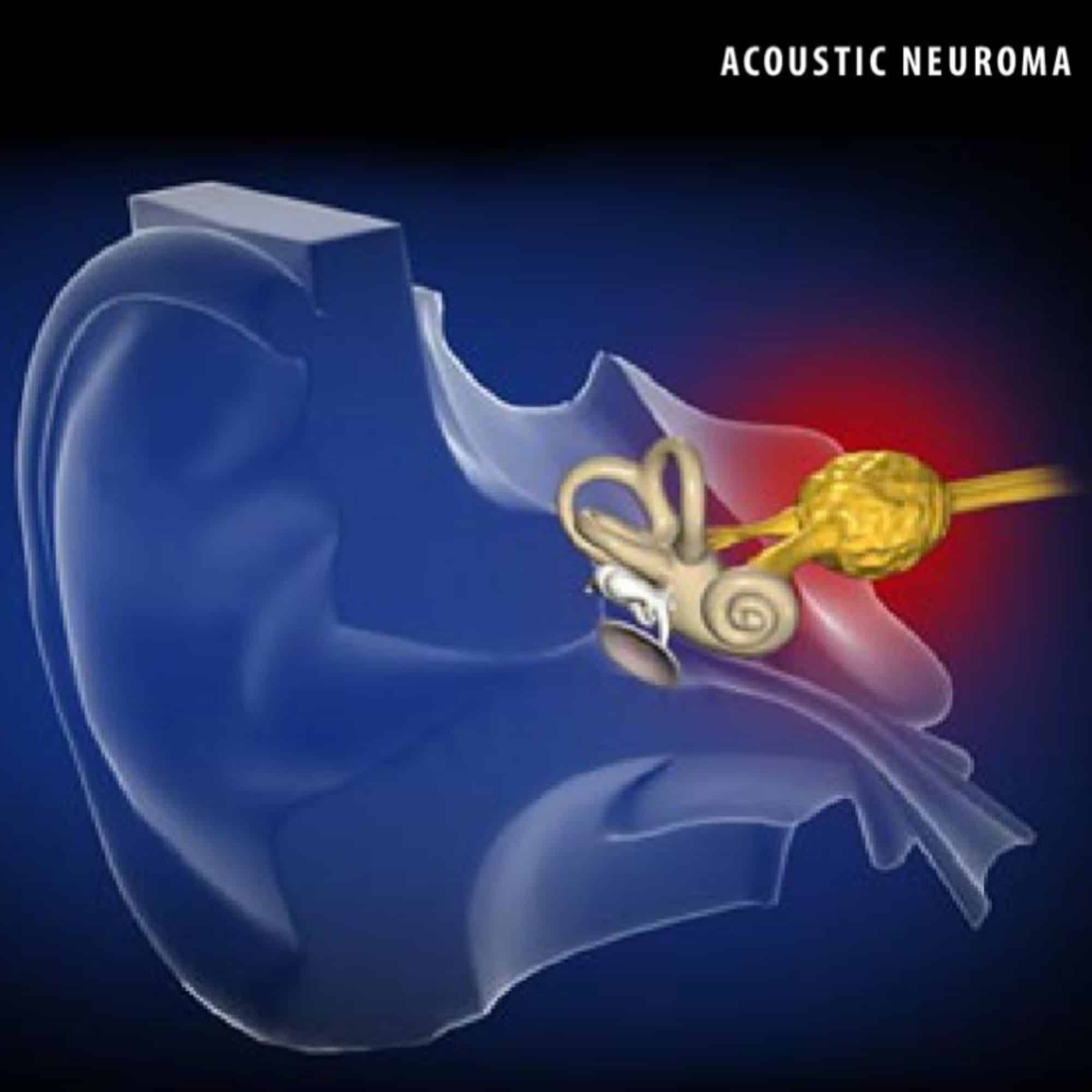Acoustic Neuroma
The acoustic (cochlear) nerve, is the main sensory nerve that transfers sounds from the cochlea to the brain. This piece is one of the many pieces that work together to make up the auditory system and allows effective hearing. If a neuroma (mass) begins to grow on this nerve it may affect your body in many ways. Here at MD West ONE, we have Neurosurgery and Spine Specialists that can properly diagnose this issue.
Signs and Symptoms
Symptoms may include:
- Ringing sound in the ear (called tinnitus)
- Facial weakness
- Difficulty swallowing
- Dizziness

What is an Acoustic Neuroma?
It is a benign growth (tumor) that forms on the vestibulocochlear nerve. This nerve leads from the inner ear to the brain. Acoustic neuromas usually grow slowly and do not spread. However, they can eventually grow so large that they press against surrounding structures, including the brain and other nerves.
What can cause an Acoustic Neuroma?
An acoustic neuroma results from abnormal growth of Schwann cells. These specialized cells encase the fibers of the vestibulocochlear nerve. The abnormal growth of these cells has been linked to a genetic malfunction.
What types of treatments are available?
Treatment options depend on the patient and on the characteristics of the tumor. If a neuroma isn’t causing problems, and if it is not growing rapidly, a physician may recommend monitoring without treatment. If treatment becomes necessary, options may include surgery and radiation therapy.
Meet the MD West ONE Neurosurgery & Spine Specialists

Bradley S. Bowdino, MD
Neurosurgery & Spine

Stephen E. Doran, MD
Neurosurgery & Spine

Landon Ehlers, MD
Neurosurgery & Spine
Andrew Gard, MD
Neurosurgery & Spine

Jordan P. Lacy, MD
Neurosurgery & Spine

Keith R. Lodhia, MD
Neurosurgery & Spine
Guy A. Music, MD
Neurosurgery & Spine


